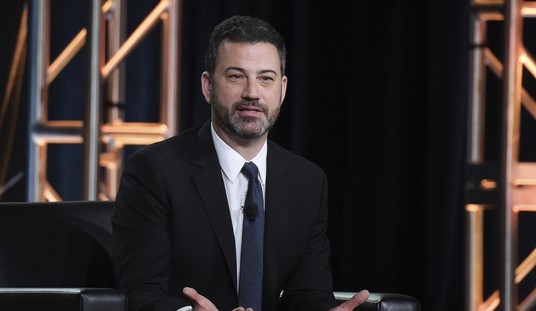Has any politician fallen faster or farther than New York Gov. Eliot Spitzer — now the apparent Client No. 9 in a prostitution investigation (sparked ironically because of suspicion that Spitzer was being bribed)?
In certain respects he is reminiscent of Icarus, flying too close to the sun and having his wax-fastened wings melt away. But the “sun” which has proven his undoing is his own arrogance.
Sex scandals bringing down a politician are hardly anything new — in fact, the first one likely occurred the day after the oldest profession was invented. Some politicians — including various governors of Louisiana and the wannabe “First Lad” of the United States have managed to save their political careers even when caught with their hands in the, uh, cookie jar.
That won’t happen with Eliot Spitzer. Aside from the potential criminal exposure in which the governor is enmeshed, he has managed to exhaust all political goodwill in a precious brief time.
The man came into office on a cyclone of popularity. He was elected in November of 2006 on a “Day One, Everything Changes” platform of changing the ethically elastic ways of Albany, home to what a non-partisan think tank has called the “most-dysfunctional legislature in the country.” Spitzer received a record near 70 percent of the vote.
But, even with that stunning mandate, there were concerns about Spitzer — which, in retrospect, should have been major warning signs. His aggressive use of the heretofore obscure Marlin Act to prosecute perceived crimes of various Wall Street shops was controversial. However, a case could be made that the controversy was ultimately ideological. Conservatives felt Spitzer was out to criminalize basic financial behavior. Liberals believed Spitzer was a crusading hero. There were also not a few of both sorts who felt Spitzer was a bit similar to a certain crusading New York prosecutor of the 1980s who also got his kicks publicly humiliating wealthy investment bankers. That guy, of course, later made it as mayor of New York.
However, a warning occurred in 2005. John Whitehead — then-Gov. George Pataki’s appointee to running the Lower Manhattan Development Corporation (LMDC) that was overseeing the reconstruction of the post-9/11 Ground Zero area — wrote an op-ed for the Wall Street Journal taking issue with Spitzer’s aggressive Wall Street prosecutions. Several months later, Whitehead revealed that Spitzer had essentially threatened him over the phone with retribution for writing the opinion piece. Spitzer and his aides called Whitehead a liar.
However, as Assembly Minority Leader Jim Tedisco discovered, the anger and fury that was unloaded on Whitehead was never far from the surface in Eliot Spitzer. Spitzer wasn’t in office a month before verbally assaulting Tedisco: “Listen, I’m a f – – – ing steamroller, and I’ll roll over you and anybody else,” said the new governor. Shortly after that, Spitzer ended up finding few allies on his first budget — which included spending four times the rate of inflation. He was essentially rolled by the very legislature he came to reform.
More incidents like the Tedisco one became part of the behind the scenes chatter with significant figures like the head of the city teachers union and the city council speaker — both Democratic women — being just two of many to find themselves on the receiving end of an infamous Spitzer explosion.
Thus, it was hardly a surprise that Spitzer became embroiled in mid-summer 2007 in what has been variously called “Dirty Tricks” or “Troopergate” or “Coptergate.” In brief, Spitzer’s aides got members of the State Police to track the state Senate Majority Leader, Joe Bruno, to assess whether the legislator was using his official helicopters for political fundraisers. Spitzer aides then got a compliant reporter for the Albany Times-Union to FOIL (the state version of FOIA), the state police records. My New York Post colleague Fred Dicker was the first reporter to discover this. Attorney General Andrew Cuomo investigated the matter, but couldn’t ascertain whether a law was broken because he didn’t have subpoena power. That controversy is still being probed by the Albany District Attorney as well as a state ethics panel. Spitzer’s credibility took a hit from a public who felt his explanations didn’t square and he had a decided reluctance to give testimony under oath. His long-time communications director was first suspended and then quit — to take a job with a well-connected lobbying effort.
A normal politician usually picks a popular policy topic to try to change the topic from a scandal. Proving that he wasn’t ordinary, Spitzer instead decided to get behind the idea of approving drivers licenses for illegal aliens. Not only did he find 70 percent of New Yorkers believe it was a bad idea, he became the lead topic on Lou Dobbs CNN show — and helped give Hillary Rodham Clinton her first campaign hiccup when she defended the idea at a Philadelphia Democratic presidential debate. Following that incident, this writer deemed Eliot Spitzer “Hillary’s Worst Enemy.” Little did I realize how prescient these words might be: “No, it is starting to look like Sen. Clinton’s biggest obstacle — indeed, the biggest wild card in Democratic fortunes in ’08 — is NY Gov. Eliot Spitzer.” A likely indictment on prostitution charges for New York’s governor may put a crimp in any Democratic Party plans to try to play the corruption card that worked so well in 2006.
And so, unlike Bill Clinton in 1998 — who was seen by a strong majority of Americans as a gregarious, hard-working president though morally flawed — Spitzer has no reservoir of popular support from which to draw as he faces a likely criminal case. Republicans hate him; Democrats don’t completely trust him (those he hasn’t ticked off with his anger-management issues) — and the public thinks he’s either dishonest or incompetent.
In short, it’s not a question of if Eliot Spitzer will resign, but when.
Robert A. George is a New York Post editorial writer and the editor of the Ragged Thots blog.









Join the conversation as a VIP Member